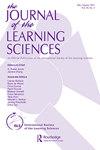Scaffolding small groups at the group level: Improving the scaffolding behavior of mathematics teachers during mathematical discussions
IF 3.9
1区 教育学
Q1 EDUCATION & EDUCATIONAL RESEARCH
引用次数: 2
Abstract
Abstract Background Supporting students during collaborative learning in mathematics is challenging for teachers. We developed the Small-Group Scaffolding Tool (SGS-Tool) to assist teachers regarding how and when to offer support. The tool is based on three characteristics of scaffolding small groups at the group level: contingency to the group, phasing out content support when the group can continue independently, and transferring responsibility for learning to the group. Method We investigated whether the scaffolding behavior of teachers using the SGS-Tool was more adapted to the group level than that of teachers not using the tool. Participants were four teachers and their seventh grade classes. The topic was Early Algebra. We analyzed teachers’ scaffolding behavior with one group during five lessons. Findings The SGS-Tool offered teachers support when the groups discussed mathematics, but adaptations of the tool are needed. Overall, the SGS-Tool seems to be a promising tool for supporting mathematics teachers in scaffolding groups at the group level. Contribution Our study provides insight into what scaffolding small groups at the group level entails and how teachers can apply it.小组层面的支架式小组:改进数学教师在数学讨论中的支架式行为
摘要背景支持学生进行数学协作学习对教师来说是一个挑战。我们开发了小组支持工具(SGS-Tool)来帮助教师了解如何以及何时提供支持。该工具基于小组级别的支架式小组的三个特征:小组的偶然性,当小组可以独立继续时逐步取消内容支持,以及将学习的责任转移到小组。方法调查使用sgs工具的教师的脚手架行为是否比未使用sgs工具的教师更适应群体水平。参与者是四名老师和他们的七年级班级。题目是《早期代数》。我们在五节课中对一组教师的脚手架行为进行了分析。当小组讨论数学时,sgs工具为教师提供了支持,但需要对工具进行调整。总的来说,sgs工具似乎是一个很有前途的工具,可以在小组层面上支持脚手架小组中的数学教师。我们的研究深入了解了小组层面的脚手架小组需要什么,以及教师如何应用它。
本文章由计算机程序翻译,如有差异,请以英文原文为准。
求助全文
约1分钟内获得全文
求助全文
来源期刊

Journal of the Learning Sciences
Multiple-
CiteScore
10.70
自引率
5.30%
发文量
17
期刊介绍:
Journal of the Learning Sciences (JLS) is one of the two official journals of the International Society of the Learning Sciences ( www.isls.org). JLS provides a multidisciplinary forum for research on education and learning that informs theories of how people learn and the design of learning environments. It publishes research that elucidates processes of learning, and the ways in which technologies, instructional practices, and learning environments can be designed to support learning in different contexts. JLS articles draw on theoretical frameworks from such diverse fields as cognitive science, sociocultural theory, educational psychology, computer science, and anthropology. Submissions are not limited to any particular research method, but must be based on rigorous analyses that present new insights into how people learn and/or how learning can be supported and enhanced. Successful submissions should position their argument within extant literature in the learning sciences. They should reflect the core practices and foci that have defined the learning sciences as a field: privileging design in methodology and pedagogy; emphasizing interdisciplinarity and methodological innovation; grounding research in real-world contexts; answering questions about learning process and mechanism, alongside outcomes; pursuing technological and pedagogical innovation; and maintaining a strong connection between research and practice.
 求助内容:
求助内容: 应助结果提醒方式:
应助结果提醒方式:


